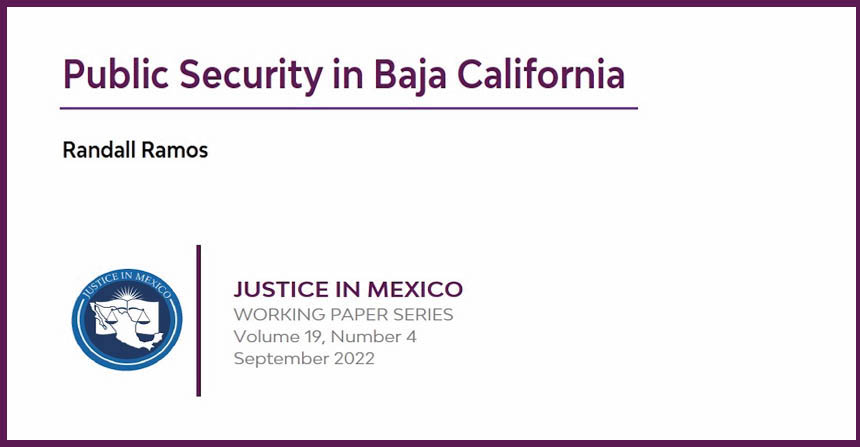The Mexican Congress passed a flurry of legislation in the waning days of April defining terms for drug prosecutions, asset forfeiture laws, and surveillance powers for federal police. The rapidity with which the bills were passed through congress has received some criticism from abstaining members and the press.
On April 30, the Federal Police Law made its final passage through the Chamber of Deputies after the Senate made its final changes to the bill. The law allows agents from the newly formed Federal Police to listen in to telephone conversations and monitor internet correspondence in efforts to prevent crime. The law requires authorization from a judge, and agents will operate under the jurisdiction of the Attorney General’s Office.
Also at the end of April, the Senate approved a reform to the Federal Firearms and Explosives Law to strengthen penalties against public servants found to be complicit in the trafficking of weapons into Mexico. The reform would impose prison sentences in such cases of a minimum 15 years and a maximum 45 years. The bill, which was proposed by six senators from the Industrial Revolutionary Party (PRI), currently awaits deliberations in the Chamber of Deputies.
With 87 votes in favor and 10 abstentions, the Senate also approved a law establishing parameters for prosecuting possession of controlled substances in amounts exceeding those deemed reasonable for personal use. The law designates up to 5 grams of marijuana, 2 grams of opium, 50 milligrams of heroin, and 500 milligrams of cocaine as amounts destined for personal, immediate consumption, and not to be prosecuted. Those found possessing amounts exceeding these will face stiffer prosecution under the new law. The law also stipulates that the Secretary of Health must develop a nationwide strategy for the prevention and treatment of drug addiction. Under the law, treatment programs would be optional until an individual’s third referral from the Attorney General’s Office, at which point treatment would become obligatory. Known as the ley contra narcomenudeo, the bill also awaits discussion in the Chamber of Deputies.
For its part, the Chamber of Deputies modified the asset forfeiture legislation passed by the Senate in April that would authorize the Attorney General’s Office, armed with a court order, to seize assets suspected to aid in or be the product of criminal activity. Most importantly, the justice committee voted to establish judges specializing in matters of asset forfeiture, a change ultimately accepted by the Senate in the bill’s final passage. The law now goes on to the executive for signing. A similar law already is in effect in the Federal District.
The so-called “fast-track” legislation that led to the passage of the narcomenudeo and asset forfeiture laws in the last days of April have received some criticism in the press from critics concerned that the two measures, which some abstaining legislators complained they had not had time to read in their entirety, were largely ignored by the national media, which was caught up in tracking the progress of the H1N1 flu virus in the country.
http://www.justiceinmexico.org/news/recent_news.php
SOURCES:
Merlos, Andrea and Juan Arvizu. “Va Policía encubierta; intervendrá teléfonos.” El Universal April 24, 2009.
Gómez, Ricardo and Jorge Ramos. “Elevan castigos a servidores que permitan tráfico de armas.” El Universal April 24, 2009.
Villamil, Jenaro. “Aprueban senadores ley contra narcomenudeo.” Proceso April 28, 2009.
Gómez, Ricardo and Jorge Ramos. “Senado aprueba con cambios nueva Ley de la Policía Federal.” El Universal April 30, 2009.
Arvizu, Juan and Andrea Merlos. “Mayoría en San Lazaro aprueba ley de extinción de dominio.” El Universal April 30, 2009.
Mejido, Manuel. “Alto Poder.” El Sol de México May 9, 2009.




